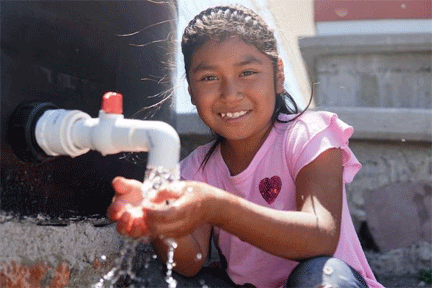How one nonprofit is cleaning up Mexico’s drinking water
News Category: News, Community News, and Non Profits
-
Published June 14, 2024
In Mexico, water scarcity is increasing at an alarming rate. In the year 2000, 58% of Mexico’s municipalities had daily access to public sources of water and only 2% were limited to access 1-2 days per week. By 2022, according to an in-depth investigation by newspaper El País, the percentage of municipalities with daily access to water had fallen dramatically to 33%, while those limited to 1-2 days per week had risen nearly tenfold to 19%. The remaining 48% had access 3-5 days per week. More recent data is not available, but by all appearances, the trend is accelerating.
The situation in the state of Guanajuato is particularly dire. The only state with a higher water stress index is Baja California Sur. In Guanajuato, 65% of the state’s aquifers are overexploited, with water table levels dropping by 1-3 meters per year. In the Upper Rio Laja Watershed, for example, which serves 740,000 people, when residents drilled wells in the 1960s, they only had to go down 5-50 meters. By the 1980s, the population of the watershed was already over-extracting groundwater. Since then, the water table has dropped hundreds of meters, so current wells must be dug up to 500 meters deep.

Caminos de Agua is a community focused, data-driven, and science-oriented non-governmental organization (NGO) based in San Miguel de Allende. We drive to empower local at-risk communities to obtain adequate supplies of safe and healthy drinking water. Today, Caminos de Agua is a team of ten full- and part-time employees, plus several graduate-level engineering and public interest interns from Engineers Without Borders UK and other universities and institutions. We’re a mix of expat residents and Mexicans, technologists and community organizers, researchers and educators, united by our concern for public health and welfare. Caminos de Agua is organized as a registered nonprofit in both the U.S. and Mexico. At Caminos de Agua, we believe that access to safe, healthy drinking water should be a fundamental human right. We help communities at risk confront challenges of water quality and scarcity through:
1. Water monitoring 2. Education 3. Community-led solutions 4. Research and development 5. Activism
-
-


Leave a Reply